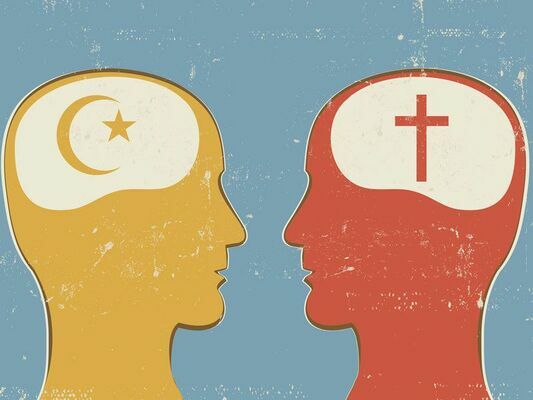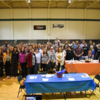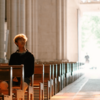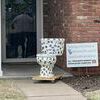Cap's Corner: Christians and the massacre in New Zealand

Our hearts were broken when we heard about the news of the massacre in New Zealand. Fifty Muslims were killed in their house of worship; 50 innocent lives ended because of hate. This got me to thinking: How should Christians respond to this?
On social media, I saw a wide variety of different responses to the attack. The most prominent ones -- and rightfully so -- were for the victims. And yet there were others. Some expressed sympathy but added post scripts like, “I cannot help but wonder what they, the Muslims, thought would happen when they themselves have committed so much pain and death around the world.” Another wrote, “This is God’s punishment.” It is possible that these responses came from a Christian.
So, what should a Christian’s response should be in this situation or in any situation similar to it?
In 1 John 2:9-11, we read: “Anyone who claims to be in the light but hates a brother or sister is still in the darkness. 10 Anyone who loves their brother and sister lives in the light, and there is nothing in them to make them stumble. 11 But anyone who hates a brother or sister is in the darkness and walks around in the darkness. They do not know where they are going, because the darkness has blinded them.”
You might think this about sums it up, but others still have questions. I know what some of you are asking yourselves, “Are Muslims really our brothers and sisters? What makes a person our brother or sister?”
I can tell you where I go to answer those questions: the beginning. I go to the first chapter of Genesis and read, “So God created mankind in his own image, in the image of God he created them; male and female he created them.”
This is where I find the answer. The way I see it, all of humanity – every person – has been created in the image of God. Every person!
In order to walk in the light, one has to love everyone. On the surface, that seems like an easy statement to throw out there, but let’s break it down. This means that we should love all of the Muslims, including the ones that were shot, the ones that witnessed it, and all others in the community. We should be praying for all of them.
Now think of this: we are praying for and loving the Muslims in the shooting. But what about the Muslims who flew planes into the Twin Towers on 9/11? Yes, we are to love them as well. We can be angry at them, and they can still be our enemies. But I recall what Jesus said we are to do to our enemies: “27 “But to you who are listening I say: Love your enemies, do good to those who hate you, 28 bless those who curse you, pray for those who mistreat you.”
This also means we are to love the man who went into that Mosque and shot up those poor people -- our brothers and sisters -- because he, too, is our brother. He is certainly a brother who is stumbling around in the darkness, but he is a brother nonetheless.
I do want to clarify something: I am not saying everyone is a brother and sister to us in Christ. That is untrue, and I am sure some would be insulted. However, what it does mean is that we were all created equal in the image of God. That is what makes us brothers and sisters.
For some, these words are easy to say. But for others, I know these words are difficult to say. It was best said by Martin Luther King Jr.: “Darkness cannot drive out darkness; only light can do that. Hate cannot drive out hate; only love can do that.”
Hate is the darkness, and love is the light. This is how a Christian should respond to the situation – or any situation, for that matter. There are many ways love is expressed, but it is never expressed in violence.
Now, take this message home into your own life. Has someone hurt you? Does someone see you as his enemy? I want you to picture that person in your head; now, in your heart, love them. I know it is not easy, and it is impossible to do without God in some cases. But this is the Christian response.
This does not mean that we should allow ourselves to be victimized again and again. We can protect ourselves and still learn to love the ones who have hurt us. We might not be able to live with them in close proximity, and it might take time – even a lot of time. But we can love them and learn how to forgive them in time.
Please support The Blackwell Journal-Tribune by subscribing today!
 Loading...
Loading...





.jpg)